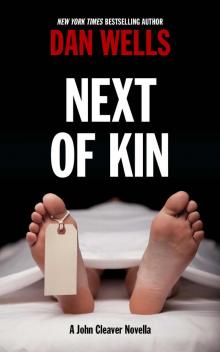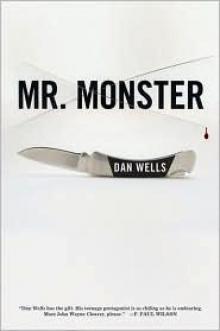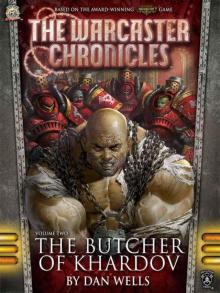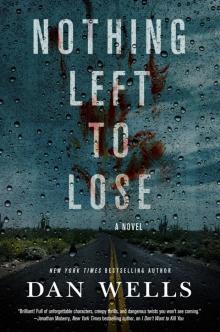The Butcher of Khardov Read online
THE WARCASTER CHRONICLES: VOLUME TWO
THE BUTCHER
OF KHARDOV
DAN WELLS
Cover by
SVETLIN VELINOV
Illustrated by
MARIUSZ GANDZEL
privateerpress.com
skullislandx.com
CONTENTS
MAP
PART ONE
PART TWO
PART THREE
GLOSSARY
PART ONE
Orsus found Lola again in a village in the mountains, listening to a traveling minstrel in a tavern full of peasants. He arrived after dark, covered in snow. He stood at the door and stomped the mud from his feet. It was a poor place, small and forgotten by the larger world, but it was the most civilization Orsus had seen in almost six months. He told Laika to wait outside, using his mind to give the steamjack a set of rudimentary instructions, then ducked his head through the low entryway, feeling shy and dirty and out of place.
The room was lit by torches and the bright-orange glow from a massive hearth, where the musician stood with his violin and winked boldly at the serving girls while he sang. Orsus registered his presence and analyzed him, along with the others in the room: eleven strong men, probably farmers, and seven more who looked softer and dressed more finely—landowners, perhaps, or craftsmen. One of those sat apart. His clothes marked him as an outsider, a traveling merchant, Orsus guessed. None of them were a threat, so he ignored them. He shook the snow from his massive coat—nearly the full hide of a black bear, rimmed with its thickest fur—and strode to the bar, leaning his long-handled axe against it while he pulled off his gloves. A serving girl no bigger than the axe eyed it in obvious fright but managed to stammer out a greeting and ask for his order.
“Vyatka,” he said, more gruffly than he intended. He had no quarrel with this girl or anyone in the village; he wasn’t even sure what village this was. It had simply been too long since he’d spoken to anyone other than Laika, and his voice sounded raw, unfamiliar. He nodded to her and forced a smile, trying to remember how civilized people behaved. He felt the farmers’ eyes on him and the serving girl, who was pretty enough, with gold-tinged brown hair just the color of Lola’s. He wondered if she were in danger from any of them—a jealous suitor, maybe, or a simple lech. She turned away to fetch his drink, and as he watched her go, his thoughts turned to Lola again for the first time in ages . . .
. . . and then there she was, leaning against the bar beside him. “Nothing for me?”
Orsus felt his throat catch, but he was too hardened to startle easily. He kept his voice low and answered without even looking at her. “You don’t drink.”
“You never used to, either.”
The serving girl set a glass on the bar—not a stoneware mug but a real glass, tall and thin and fragile—and poured a double shot of vyatka from a slender green bottle. Orsus never asked for a double, but most servers gave him one anyway. He was seven and a half feet tall and built like an ox, his gaunt face scarred from countless battles. He lifted the glass, ready to down the entire thing in one go, but paused, set it back on the worn wooden bar, and slid the glass over in front of Lola.
“Would you like some?”
He still hadn’t looked at her, still hadn’t dared, but her voice was like sunshine and honey, so familiar he’d know it anywhere. A voice he heard every night in his dreams.
“Excuse me?” asked the traveling merchant. He was sitting on Orsus’ left, away from Lola, and Orsus turned his head just enough to catch him in the corner of his vision.
“This doesn’t concern you,” Orsus said.
“I’m sorry,” the merchant said, “I thought you were offering me a drink. Awfully friendly little town, I thought. Glad I stopped in. No matter, my fault for mishearing you, my name’s—”
“I was talking to the lady,” Orsus growled, turning away. The vyatka was still sitting there, Lola’s pale white hands resting softly beside it, but he thought he could see the faint print of her lips on the glass. He wanted to pick it up, to put his lips in the same spot and imagine for just a moment that they were touching—
“What lady?”
Orsus narrowed his eyes and looked back at the merchant. “Excuse me?”
“Not many here I’d call ladies,” the merchant said with a leer. “Closest thing in this whole place is that dark one in the corner, and she looks awfully taken. Clinging to that money changer’s arm like it was made of gold, which it probably is as far as she’s concerned. A woman like that you’d have to woo. The rest of these trollops—”
“What did you say?” Orsus’ voice was dark and full of menace. He rested his hand ever so lightly on the man’s back. Even so, the weight of his pan-sized hand—his fingers stretched nearly from shoulder to shoulder—was threatening. He felt the merchant grow tense.
“Didn’t mean nothing by it, sir, honestly sir, I’m just passing through. I don’t want any trouble with your village, sir.”
“It’s not my village. But the women in it—the ladies, whether you think of them that way or not—you may consider to be under my protection. Now get out of here.” He lifted his hand and the merchant was off his stool and halfway to the door in a second. Orsus turned back to the bar, calming his rage. “I’m sorry about that.”
“You can’t let everything bother you so much,” Lola said. “This isn’t how we used to live.”
“I’m sorry for that, too.”
“That doesn’t change it, though.”
Orsus noted the hint of sadness in her voice. He wanted to say something else, but he didn’t know what—he’d already given an apology, and she obviously wasn’t interested in another. He stayed silent, hoping she would fill the empty air. She always knew what to do.
Lola’s fingers tapped the wooden bar in time with the minstrel’s song. “Would you like to dance?”
Orsus laughed, feeling again the way she’d always made him feel in the old days—an uncomfortable schoolboy, gigantic and clumsy and too in love to say no. “You know I’m no good at dancing,” he said, but she put her hand on his and his protests were burned away like mist in the sunlight.
The feel of her skin was a miracle, smooth and shocking and familiar and electric, like going out and coming home all at once, an endless adventure more right and real than anything he’d ever known. He looked at her now, for the first time in he’d forgotten how long. Her eyes were wide, carefree, and brimming with life as they’d always been, her hair rich and sparkling, her skin soft as silken cream. He put his hand on her waist, their eyes locked, and he shouted to the minstrel in a voice that boomed across the room like a cannon.
“Do you know any dancing songs?”
The minstrel struck a sour note on his violin, shocked by the volume of the request. “I . . . don’t have a bayan, sir, but I could try to—”
“Your fiddle is enough,” said Orsus. He smiled at Lola. “Play a kareyshka! I’m going to dance with my wife.”
They stepped toward the center of the room, small sideways steps in the traditional style, but no music came. Orsus looked up in a fury to see the minstrel with his jaw hanging open, staring dumbly. “I told you to play!” he roared, and the minstrel positioned his violin. He began bowing out a song, unsteadily at first, but faster and with more confidence as his hands fell into their familiar patterns. Orsus looked back at Lola and twirled her through the room, stepping and stomping and weaving between the tables. He smiled at her, more alive than he’d been in years, and she smiled back, more alive than—
People were laughing. Orsus ignored them. Let them laugh; they’d laughed at him his whole life and he’d never let it bother him. He was in love with the most wonderful woman in the world, and now he had
her, and she was looking at him, smiling at him, holding him again just like she had before the—
His head ached from so much spinning, and he returned to the simpler part of the dance, small steps forward and back, holding Lola first in one hand and then in the other, torchlight glinting in her eyes like steel.
“Is that what you meant?” It was a familiar voice, the merchant’s, cackling with high-pitched laughter that rose above the violin. “He told me the vyatka was for a lady—I never imagined he meant that old thing!”
Orsus seethed, the rage inside him growing hotter, but Lola clucked her tongue softly. “Just ignore them.”
“His wife, he called it,” said a farmer, greeted by another gale of laughter. “Do you suppose he kisses it as well? Filthy thing like that?”
“Take that back!” Orsus’ roar shook the rafters, and in two steps he was beside the man, lifting him from his seat with a single hand around the throat. “Take it back now or I’ll break your neck!”
The entire room was on its feet in an instant, some men backing away, some leaning forward as if they intended to rush him. Orsus was more than a head taller than their tallest, a full hand-span broader than their broadest. The farmer in his grip kicked wildly as he hung in the air, clawing at Orsus’ fingers around his neck.
“Let him go,” said one of the craftsmen. A dark-haired woman cowered behind him, and the serving girl behind her. “Just set him down, nice and easy, and we’ll forget this whole thing.”
“He called her filthy.”
“And he’s very sorry.”
“I want to hear him say it.”
“It’s just an axe!” shouted another farmer. “For Menoth’s sake!” The man put a hand on Lola’s arm, yanking her away, and Orsus watched as her dress tore, her arm ripped, her chest blossomed with blood.
The world turned red with blood and fire, the air filled with ash and snow and screams. “Where were you?” she pleaded. “Why weren’t you here to protect me?”
The farmer in his hand gave a choked scream as Orsus hammered him into the man on Lola’s arm. Both men went down with a crunch of bone, and the room swarmed him. There were seventeen men still standing, small knives and cudgels appearing in their hands, seemingly from nowhere. They were not farmers but warriors, thieves, brigands, and murderers.
In the space of a heartbeat he studied the room, mapping its obstacles and cover, identifying the greatest threats. The man behind the bar had a blunderbuss but wasn’t an expert with it, and Orsus guessed it would take him eight seconds at least to ready and fire it; he had eight seconds to work his way back to an alcove near the door, where a sturdy wooden beam could shield them from the blast.
He kept Lola close beside him in his left hand, turning his body to protect her as the first wave of outlaws crashed against him: six men at once, clubs swinging for his face and guts and knees, knives darting in through the gaps in his defenses. He had no armor but his thick bearskin coat, which he turned with a swish to catch the first small dagger, brushing the blade harmlessly to the side. He turned into the man, cracking him in the face with his left elbow and opening a hole in their circle where Lola could stand clear. At the same time he reached out with his right hand and caught a heavy wooden cudgel aimed for his face, levering it down in a brutal swing that dragged its wielder with it, blocking two more attacks from the mob—one with a cudgel that thumped the man’s spine, another with a dagger that pierced the man’s side with a blossom of red. The man wielding the dagger stumbled back, eyes wide, but before he could protest his innocence Orsus threw the stolen cudgel at his face and dropped him wordlessly to the floor.
More men joined the fray, armed with increasingly larger weapons—a chair leg, a table leg, an entire table—and Orsus slowly worked his way back toward the alcove, blocking and redirecting, striking when he could, counting down the seconds. In his eyes the men were snarling and rabid, snapping their jaws like wild animals, hungry for just a taste of Lola’s lips, of her skin, of her soft, supple flesh. The bartender raised his blunderbuss, and Orsus fought more furiously than ever, cracking skulls, snapping spines, and throwing broken bodies like javelins at the cowards who tried to flee. His ear pricked like a wolf’s at the sound of a tiny click, and he stepped behind the thick wall just as the blunderbuss fired, a half pound of burning lead flying straight for his skull. The blast tore a hole in the wooden beam, exploding in a cloud of wooden splinters and bits of twisted iron, but it didn’t penetrate all the way. He and Lola were safe.
Orsus leaned Lola gently in the corner. He found a dagger stuck into his leg and pulled it out with a grunt, stepping out from behind the wall and hurling it at the barkeep. It sunk deep into his throat, he fell, and the room was empty.
Orsus surveyed the destruction, vigilant for more attacks, but nothing moved. His adrenaline faded, and the red in his eyes subsided, replaced with great splashes of hot red blood coating the walls and broken chairs and splintered tables. Women lay among the dead; had the women attacked him, too? He saw his glass of vyatka on the bar. His axe was gone. He hadn’t used it in the fight, and no one had used it against him, but it was gone.
The ash and snow were gone, too, and the howling and the screams and the fires and the bright, vivid clarity. In their place a blankness crept over him, a deadness, as if his soul were stone and his flesh iron. As invulnerable and unfeeling as a steamjack.
He knew where his axe was. A part of him, he thought, had always known. He walked to the bar, stepping over the broken bodies, and stared at the vyatka. The lip print he’d seen was gone. He raised it to his lips and drank; it burned, he knew, but he didn’t feel it.
Six months in the wilderness. Maybe he’d stay longer this time. Maybe he’d never come back.
Orsus walked to the corner and looked at his axe, five feet tall and a hundred pounds at least, leaning gently in the alcove where he’d stood to protect her. “Come on, Lola. Time to go.” He picked up the axe, pulled his hood low over his eyes, and walked back into out the snow.
“Jack!”
Orsus ignored him, raising his heavy axe and chopping down again on the massive log. He hated it when they called him Jack.
“Jack, boy, I’m calling you! Are you as deaf as you are ugly?”
Orsus rose up to his full height—nearly seven feet tall, though he had just turned sixteen—and looked at his boss, Aleksei. “My name’s Orsus.”
Aleksei was a short man, though nearly as broad as Orsus. When he smiled, his lips curled up in a grin so devilish it made the women in town grow pale and make the sign of warding. He smiled now, as if reveling in Orsus’ discomfort. “I know your name, boy, I’m using your official title. We’re done with this tree, and I need a ’jack to move it.”
Orsus glanced at the log by Aleksei’s feet, where two of the younger village boys had spent the last ten minutes hacking away the twigs and branches, preparing the log for transport back to the mill. It was a small tree, probably too small for the logging crew to bother with, but still twenty feet long and several hundred pounds at least. Orsus studied it a moment, calculating the weight and balance. He shook his head. Aleksei’s crew was a major operation, the biggest logging company in the forest, and they didn’t have time to bother with a tree that small. The one Orsus was working on had been ninety feet at least, and more than three feet wide at the base; he was chopping it into three equal sections for easier transport back to the mill. That was the kind of tree they needed. A tree the size of Aleksei’s . . . there was no good reason to fell it in the first place.
No good reason, but one painfully obvious bad one.
Aleksei leered, gesturing at the tree, and several of the other loggers were looking up now as well, pausing to enjoy the jest. As always, Orsus refused to give them the satisfaction. He turned back to his own tree, readying his heavy axe for another strike. “Get Laika to do it.”
Orsus raised his axe and brought it down with a thunk, burying the wide blade nearly eight inches into the wood. Th
e felled tree came nearly to his knees, a thigh-high monster for any other man on the crew, but Orsus would cut through it completely in just a few more strikes.
“My dear little boy.” Aleksei adopted his most patronizing nursemaid tone. “Laika is a steamjack. She carries the big trees. Something this small would be an insult to the mechaniks that made her.” The side of his mouth twisted up in a sneer. “This is a job for a man-jack.”
Orsus paused, tempted to let this final jibe sway him, but he closed his eyes and took a breath. He would ignore it. He raised his axe again and brought it down at an angle to his last deep cut. The blade bit deep into the wood, meeting the line he’d carved with his previous swing, chopping out a wedge-shaped chunk the size of a man’s leg. He leaned down and picked the fragment up, tossing it to the side as if it weighed no more than a toothpick. The other loggers looked away, disappointed he hadn’t risen to the bait.
Aleksei walked toward him. Orsus knew what was coming and set himself for another argument. “I want you to come with us tonight,” Aleksei said, lowering his voice conspiratorially. “Molonochnaya, just after dark. We’re not even fighting anyone, just . . . accelerating a few design flaws in their equipment.”
Molonochnaya was the neighboring village, nearly an hour away by foot. They had a new logging operation of their own, Orsus knew, a desperate attempt to get out from under Aleksei’s thumb, and the conniving little man was apparently confronting the matter directly. It was hardly surprising—Aleksei had been performing similar “after-hours projects” around the area for years, keeping his business strong by stomping out the competition. It was standard practice for the kayazy, as Orsus well knew. He’d been one of Aleksei’s thugs for years.
But not anymore.
“There are plenty of trees for everybody,” Orsus said, turning back to his work. He swung the axe again, biting another giant chunk from the tree.

 Partials
Partials The Devil's Only Friend
The Devil's Only Friend Isolation
Isolation I Don't Want to Kill You
I Don't Want to Kill You Ones and Zeroes
Ones and Zeroes Next of Kin
Next of Kin Over Your Dead Body
Over Your Dead Body Fragments
Fragments Mr. Monster
Mr. Monster The Butcher of Khardov
The Butcher of Khardov I AM NO T A S E RI AL KI L L E R
I AM NO T A S E RI AL KI L L E R Nothing Left to Lose--A Novel
Nothing Left to Lose--A Novel Active Memory
Active Memory A Pear-Shaped Funeral
A Pear-Shaped Funeral I Am Not a Serial Killer
I Am Not a Serial Killer Bluescreen
Bluescreen Ruins
Ruins Zero G
Zero G The Hollow City
The Hollow City Extreme Makeover
Extreme Makeover Partials p-1
Partials p-1 The Complete John Wayne Cleaver Series: I Am Not a Serial Killer, Mr. Monster, I Don't Want to Kill You, Devil's Only Friend, Over Your Dead Body, Nothing Left to Lose
The Complete John Wayne Cleaver Series: I Am Not a Serial Killer, Mr. Monster, I Don't Want to Kill You, Devil's Only Friend, Over Your Dead Body, Nothing Left to Lose